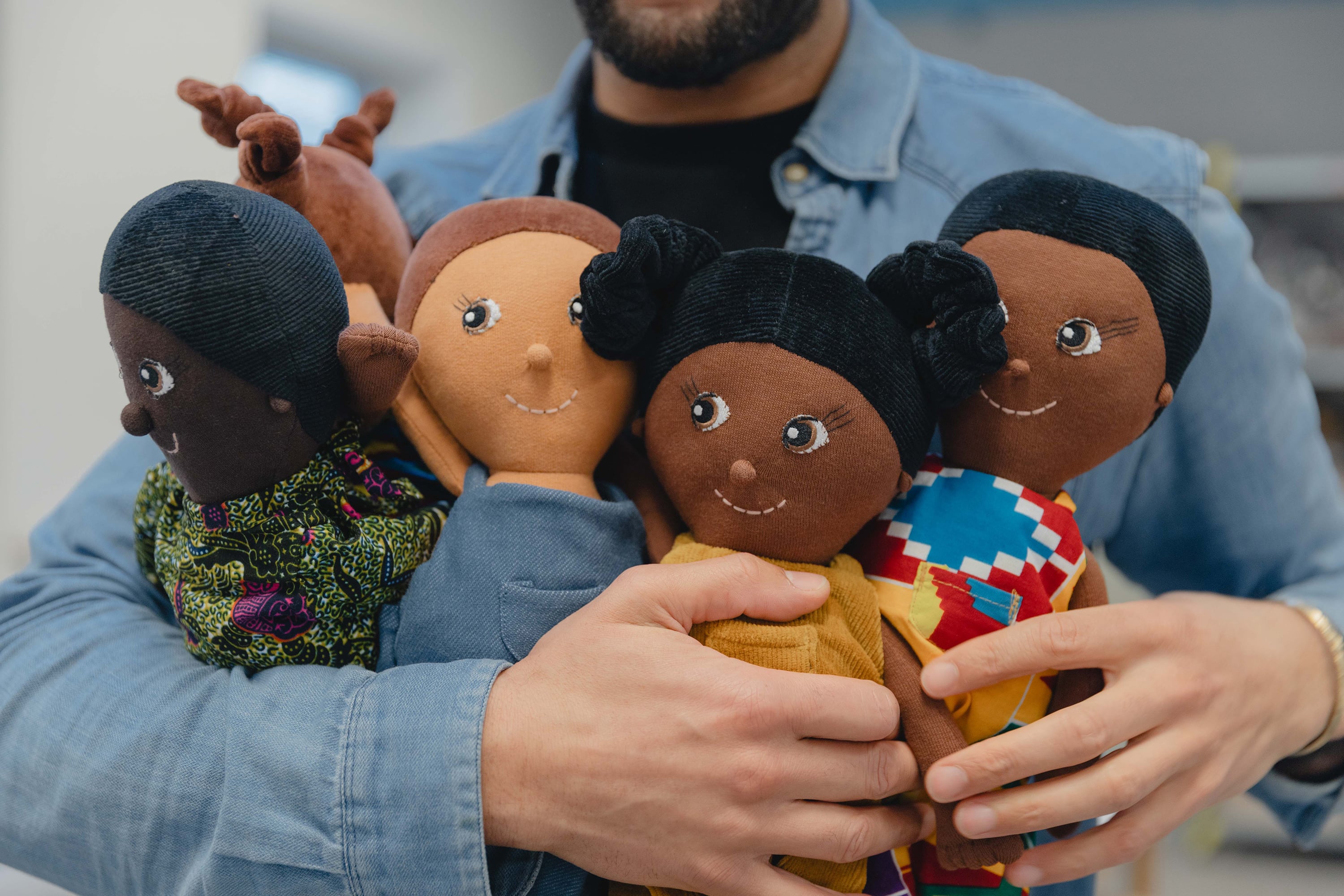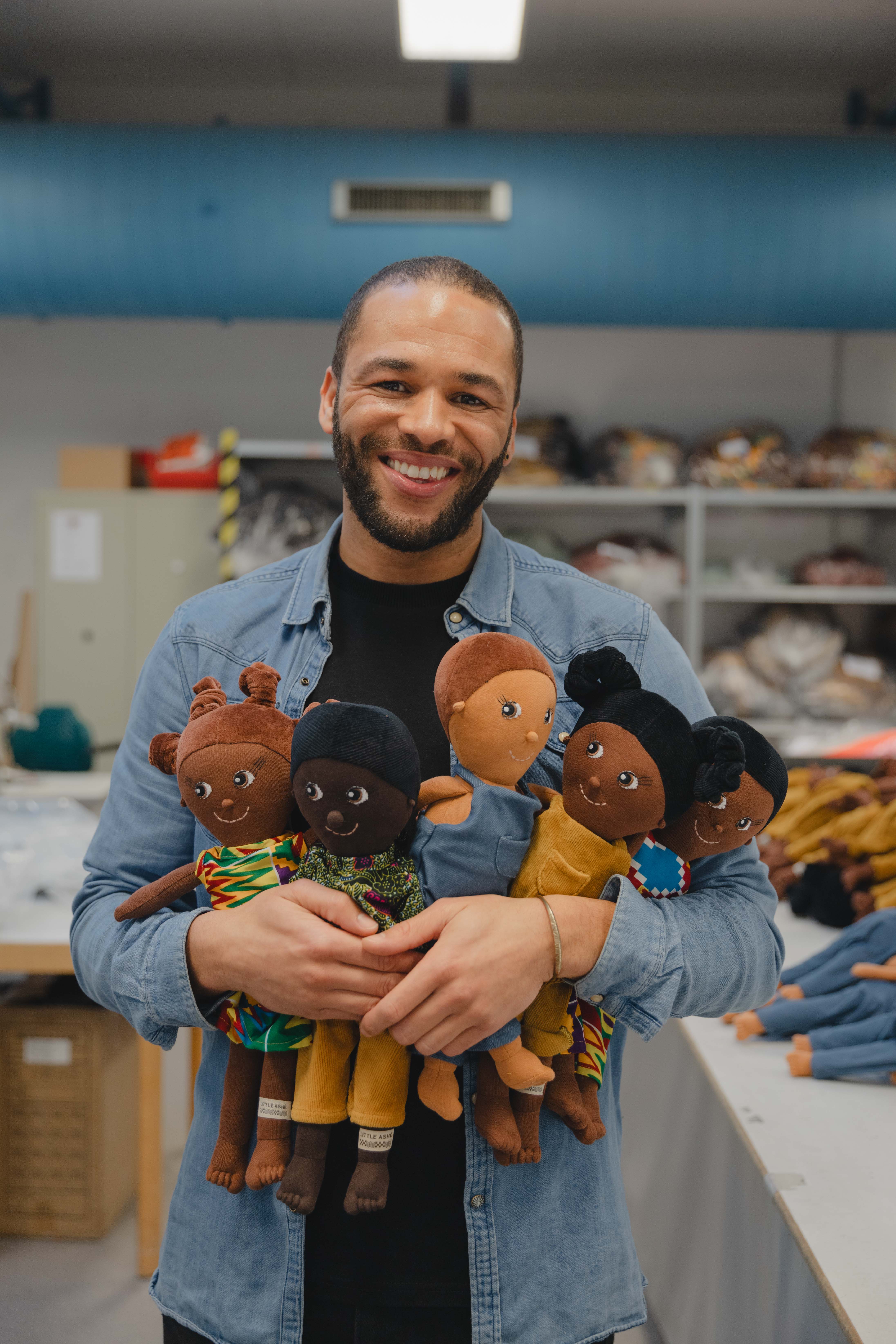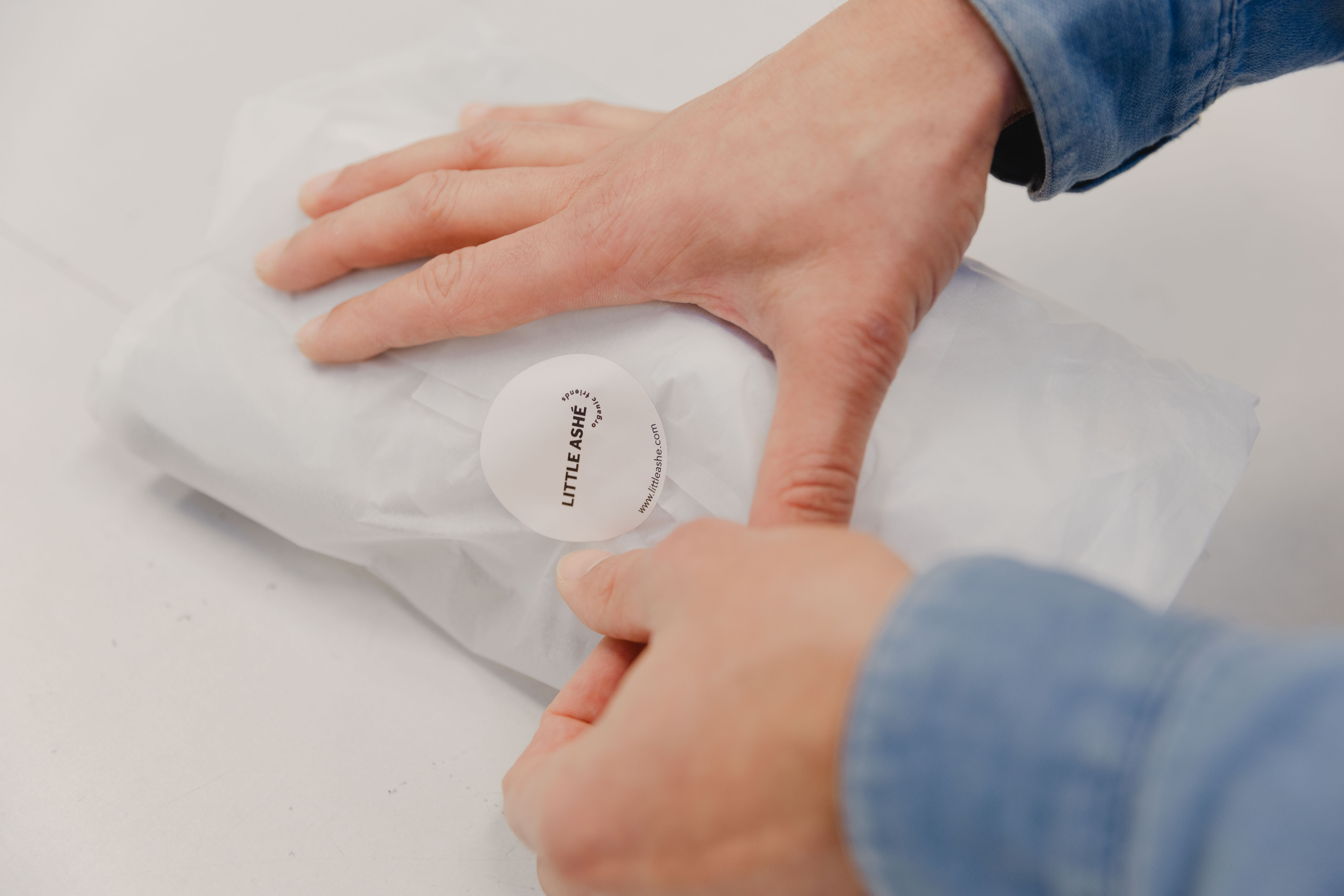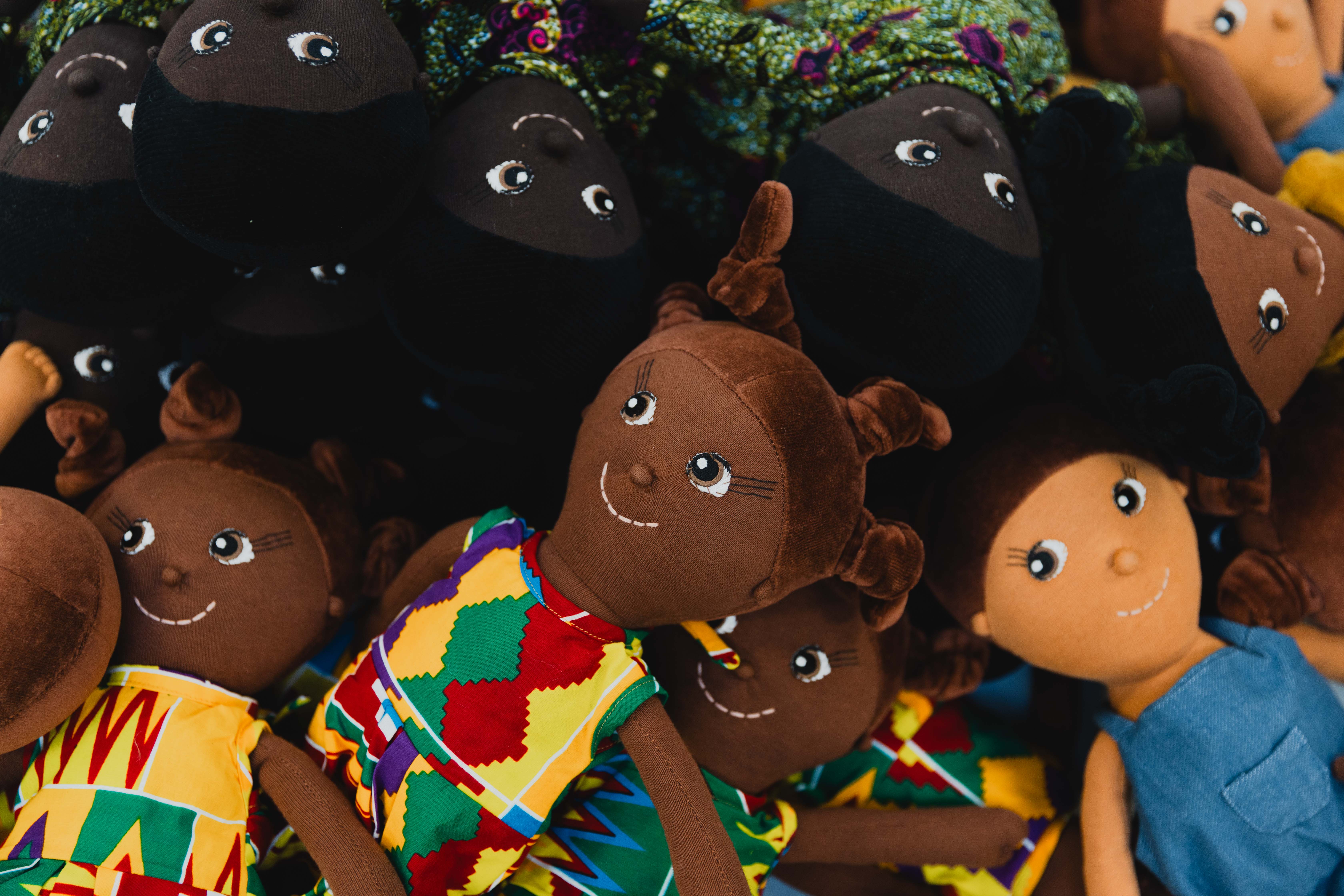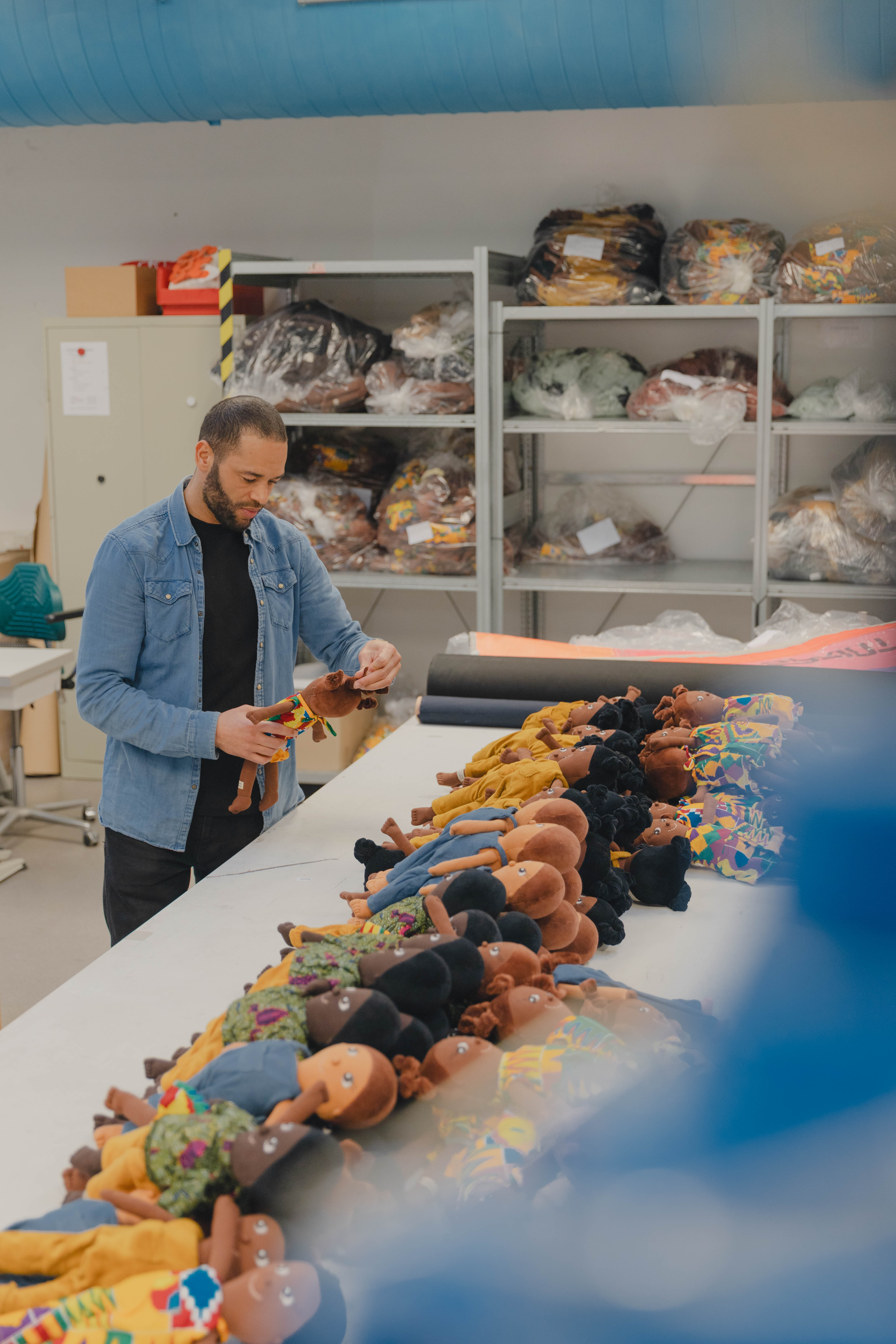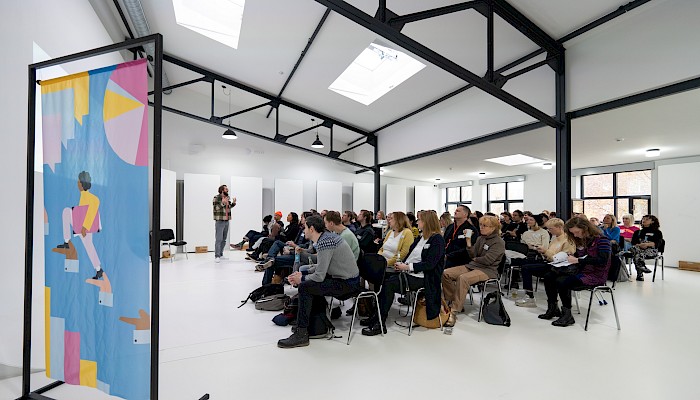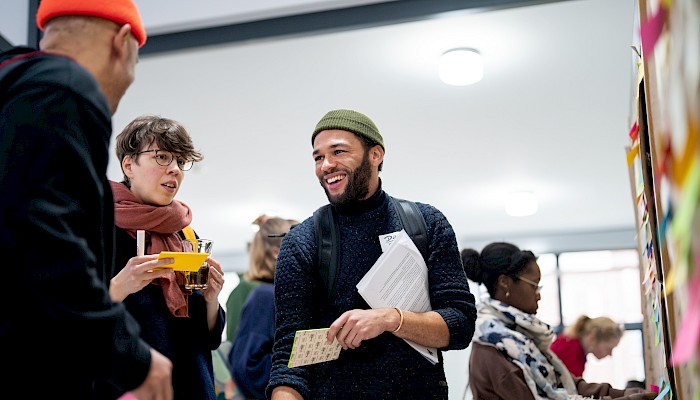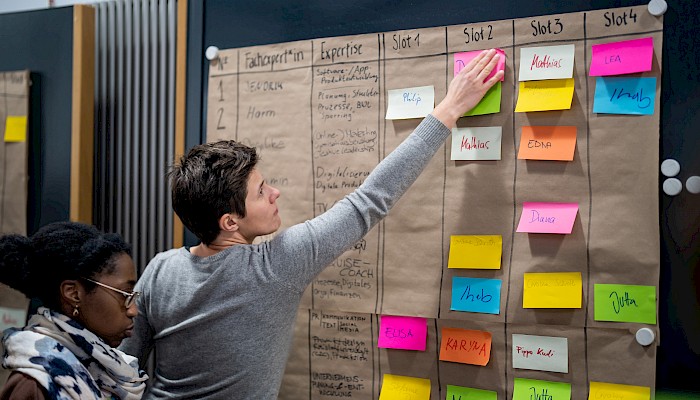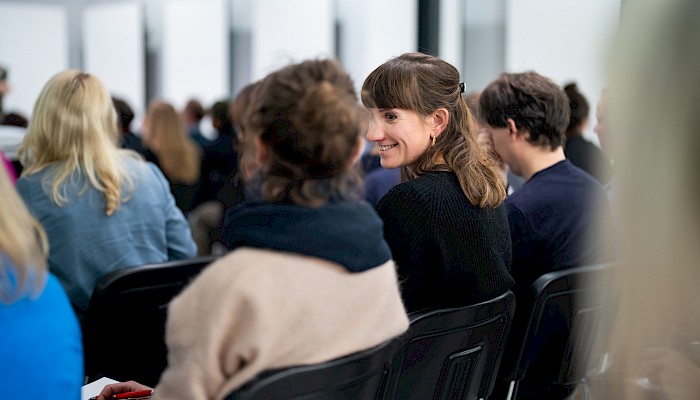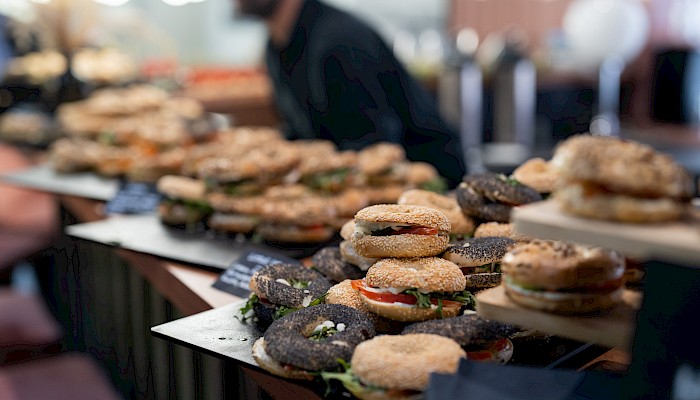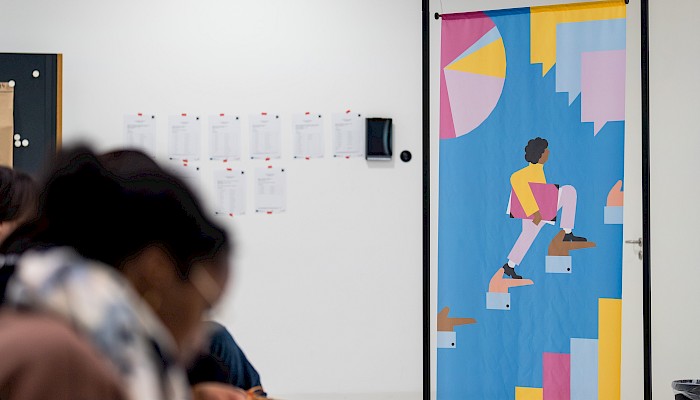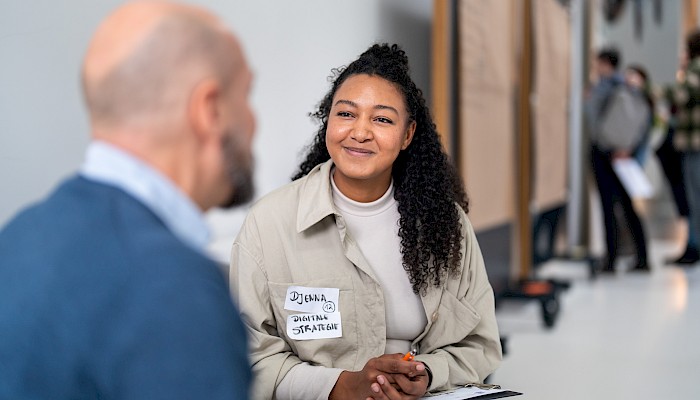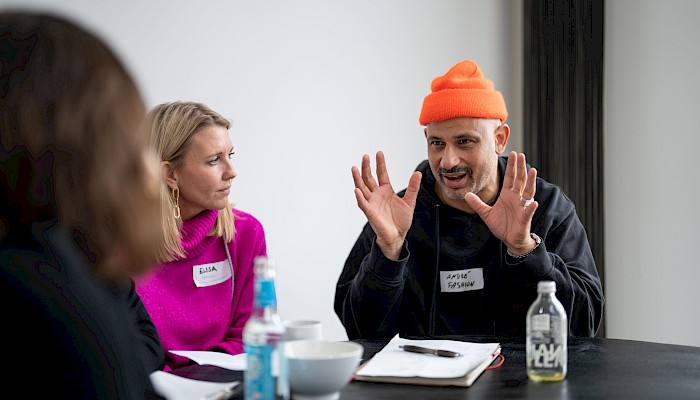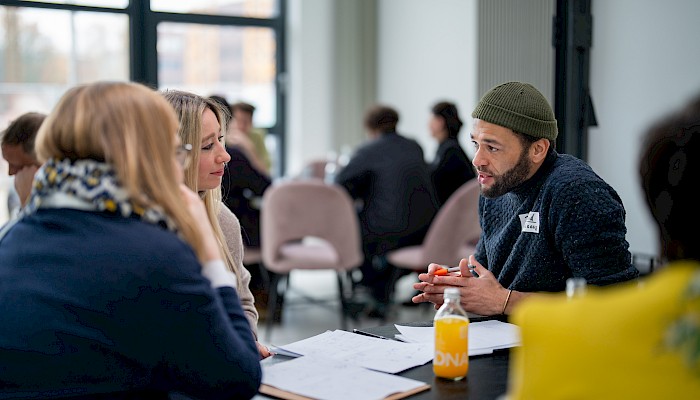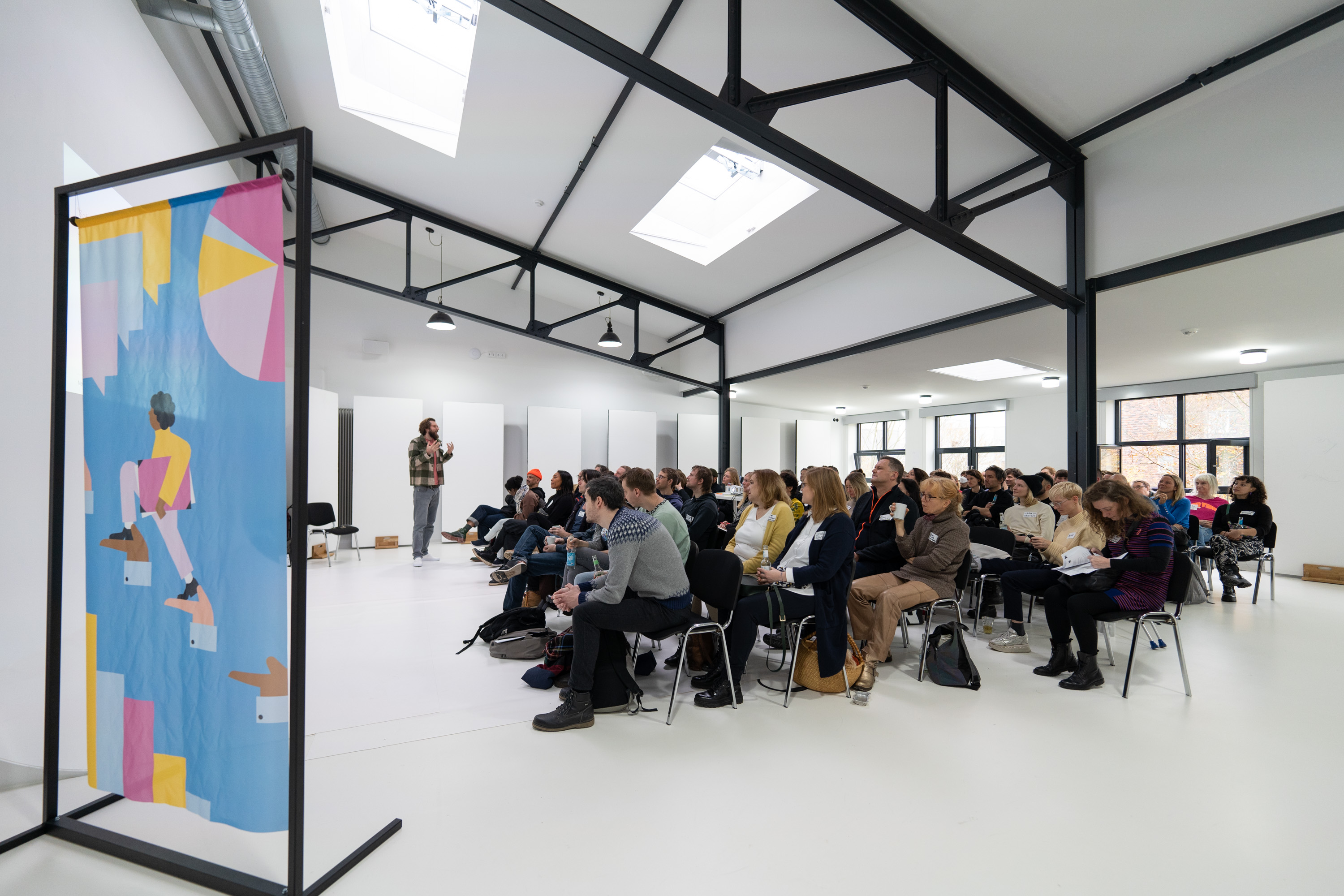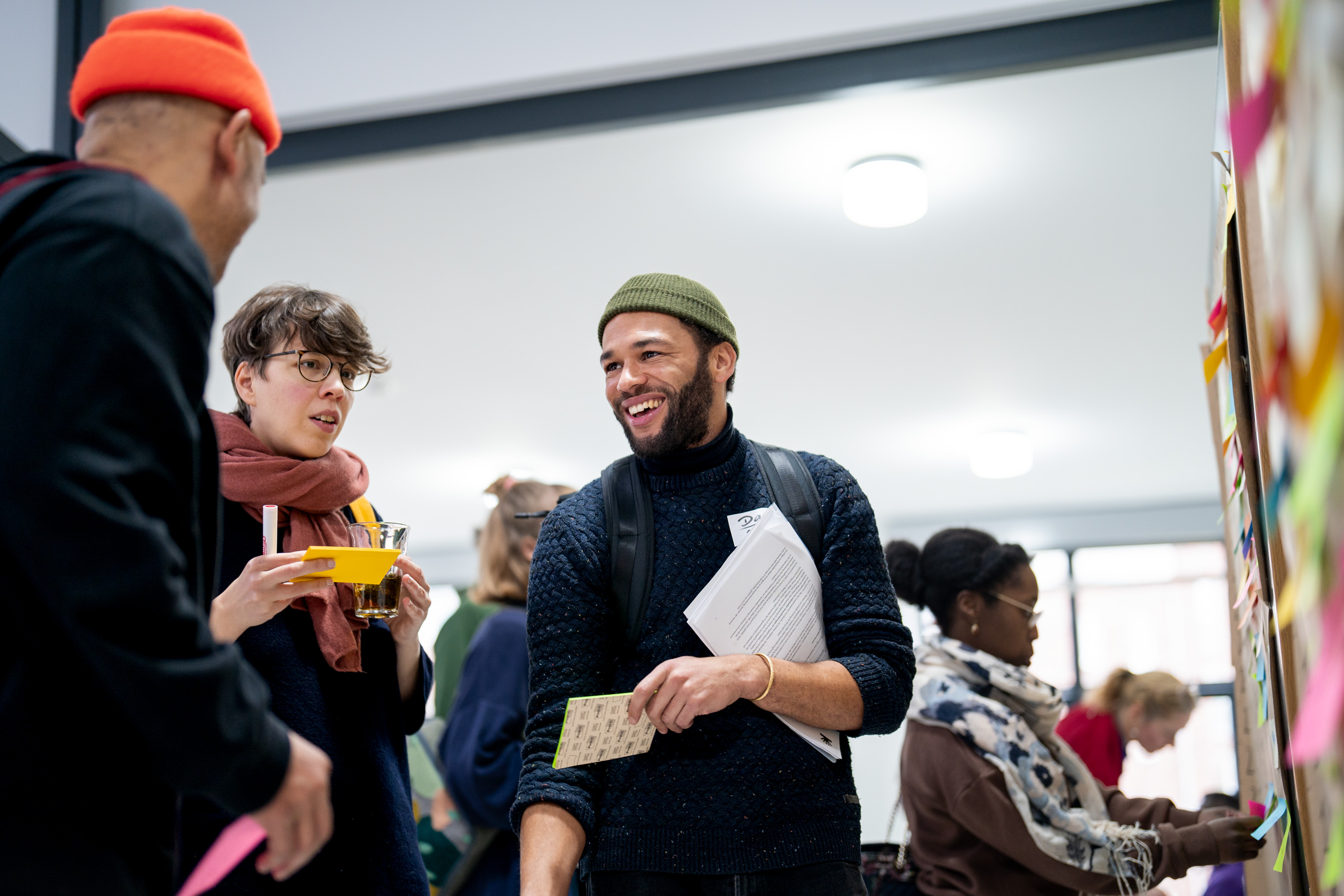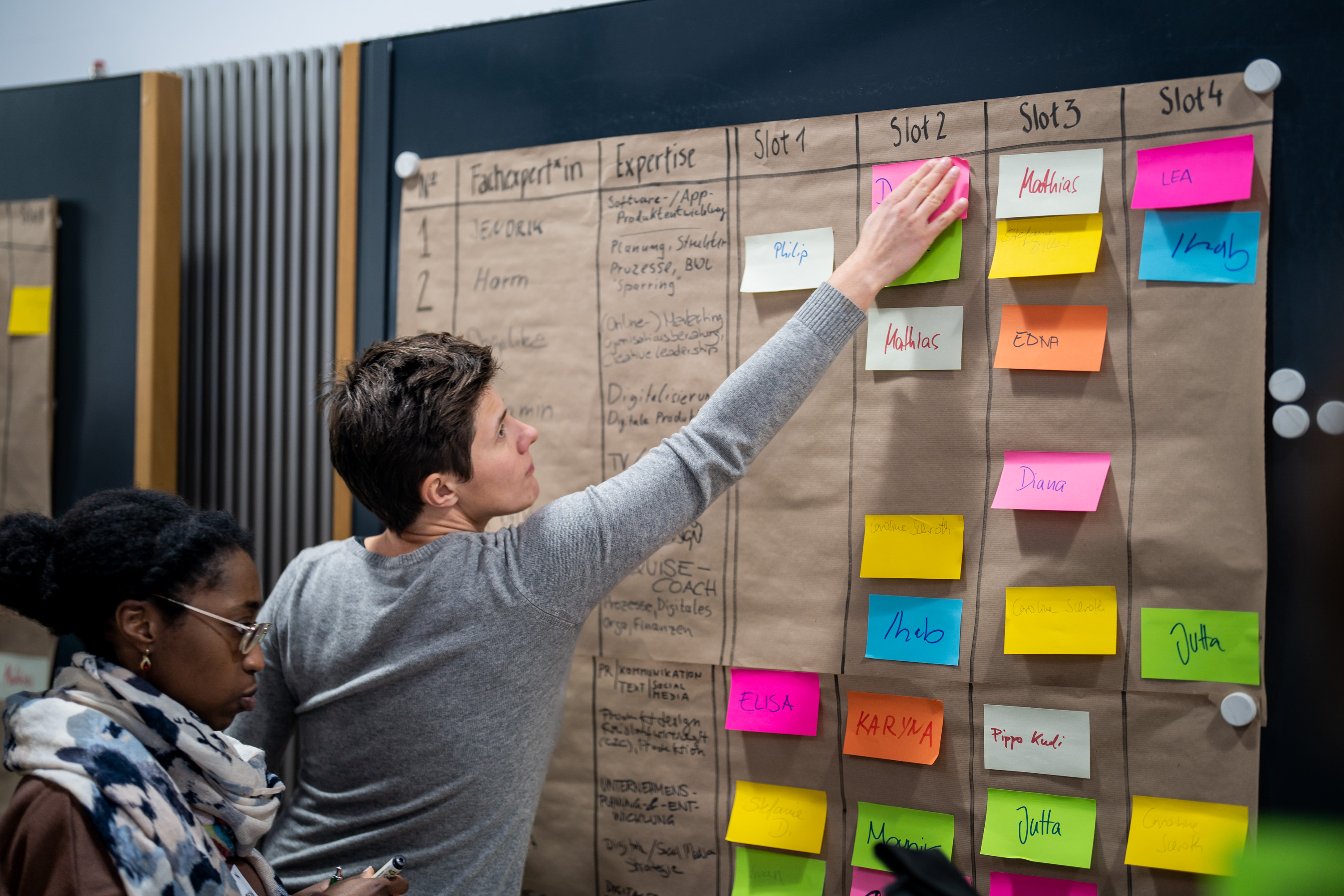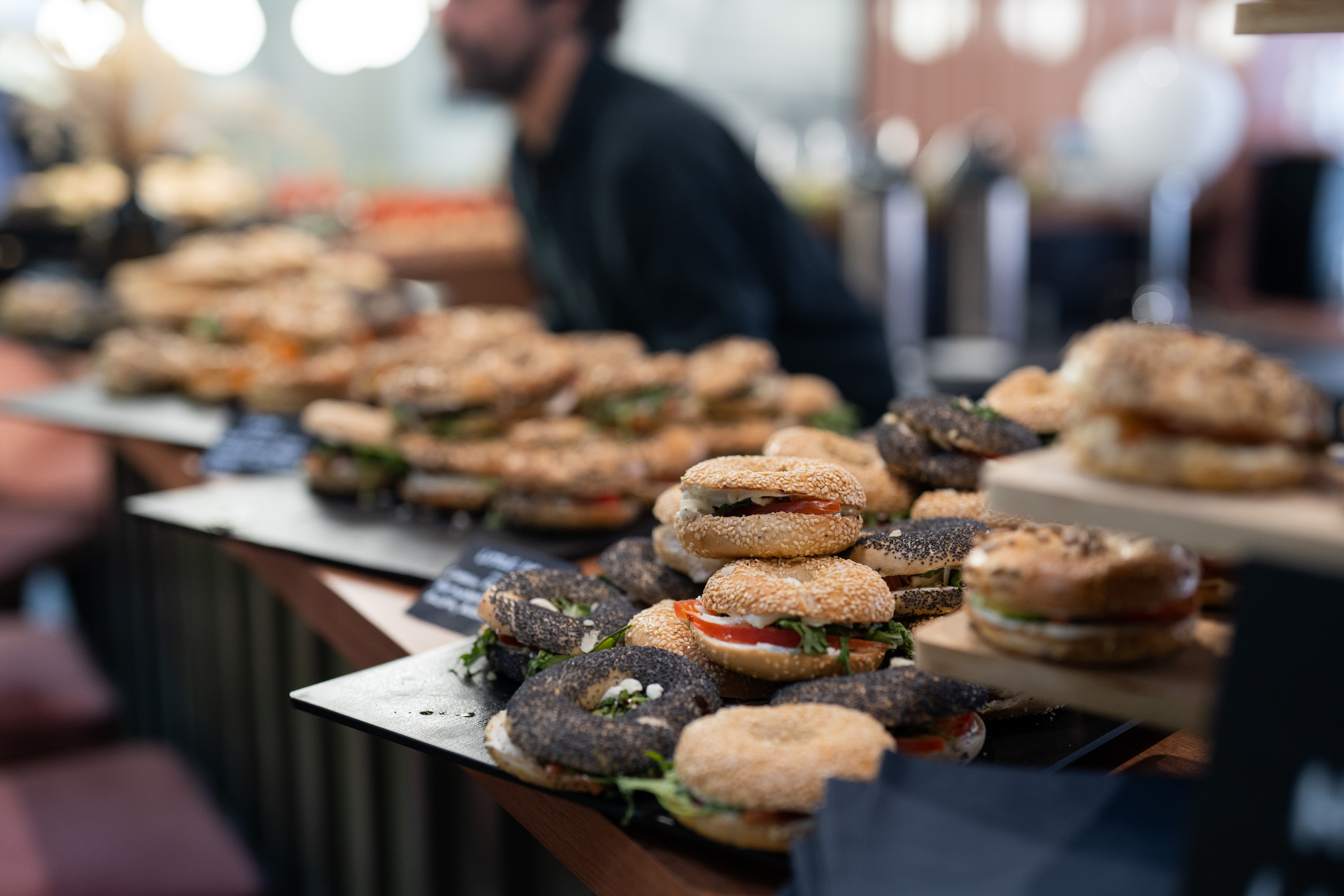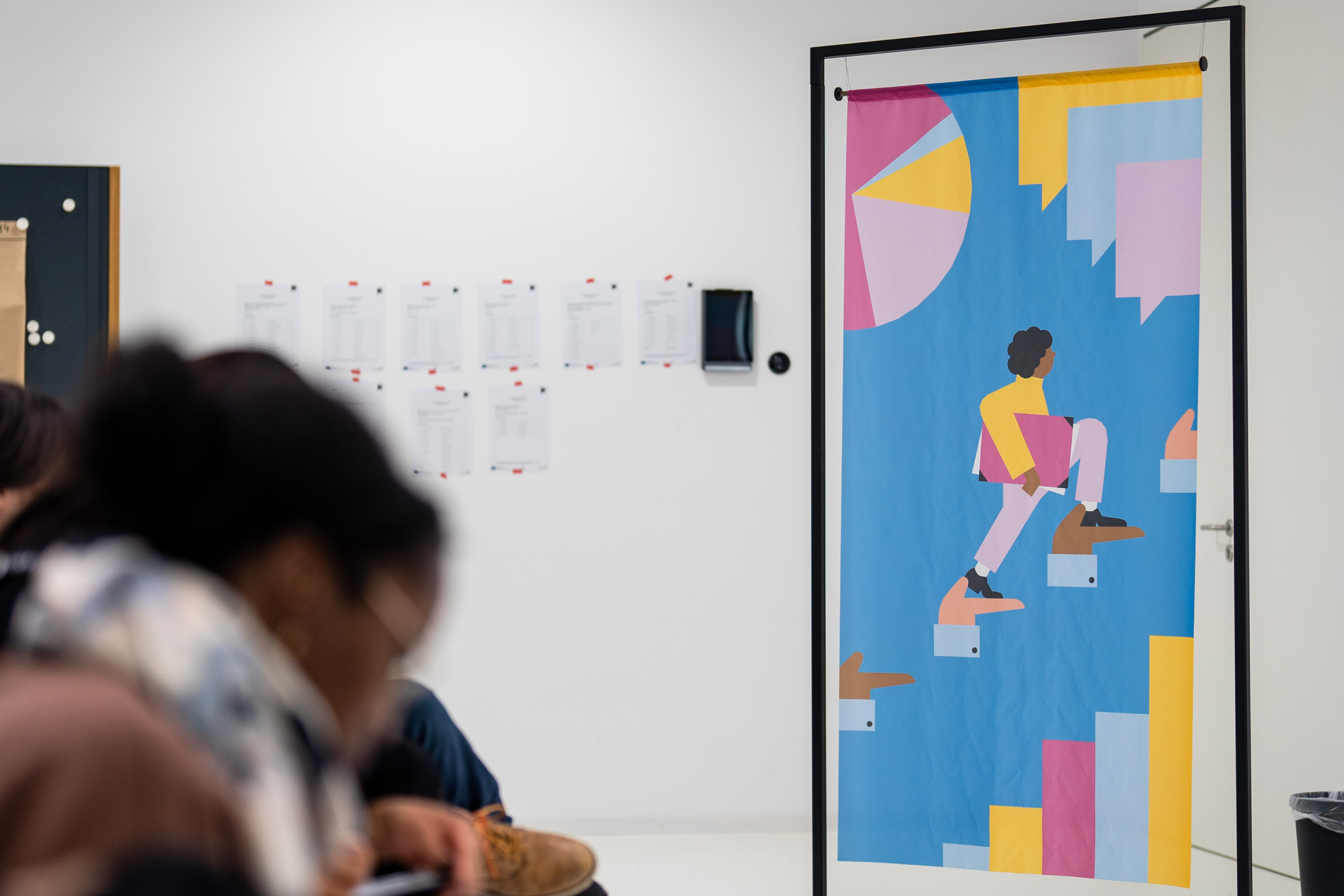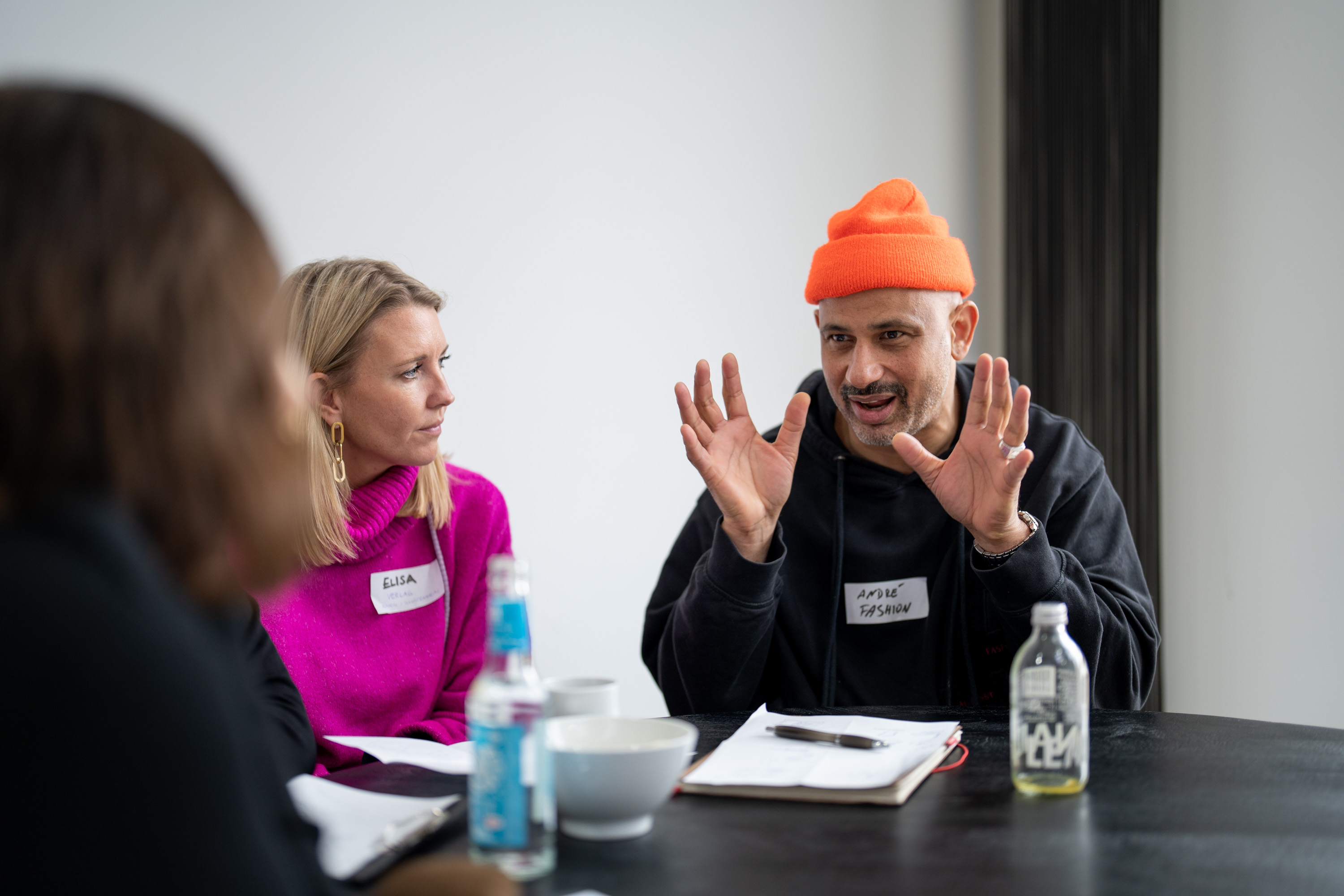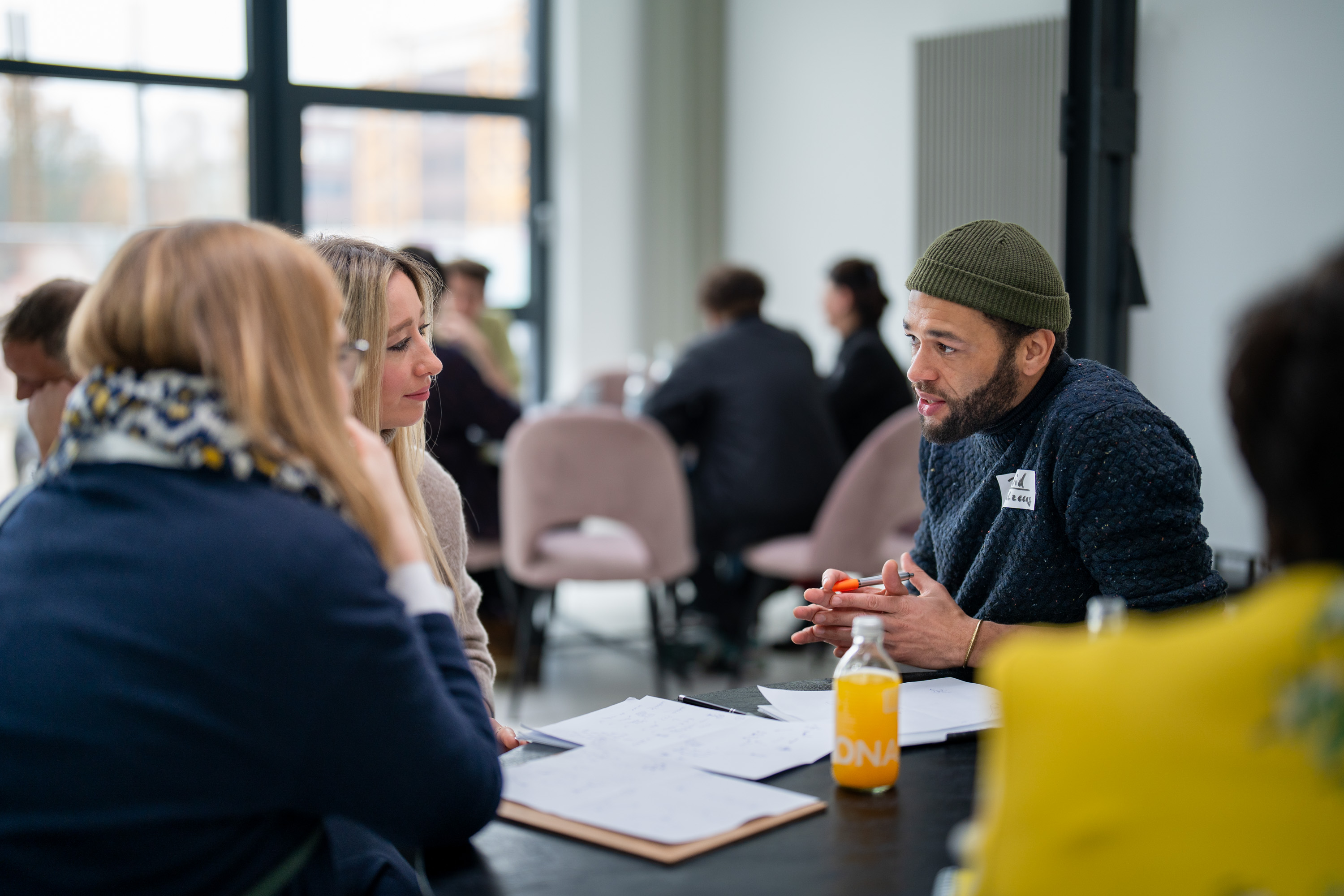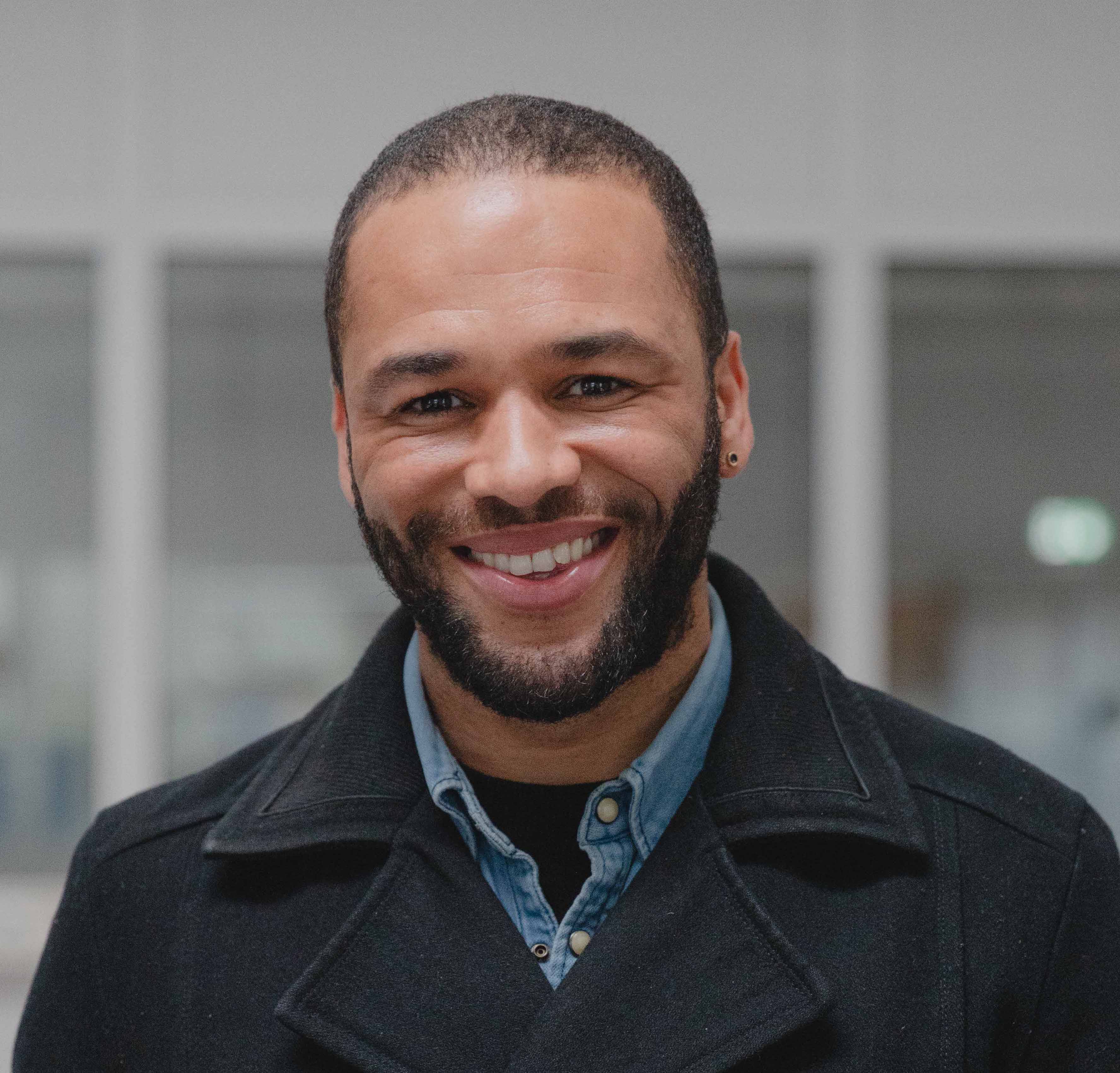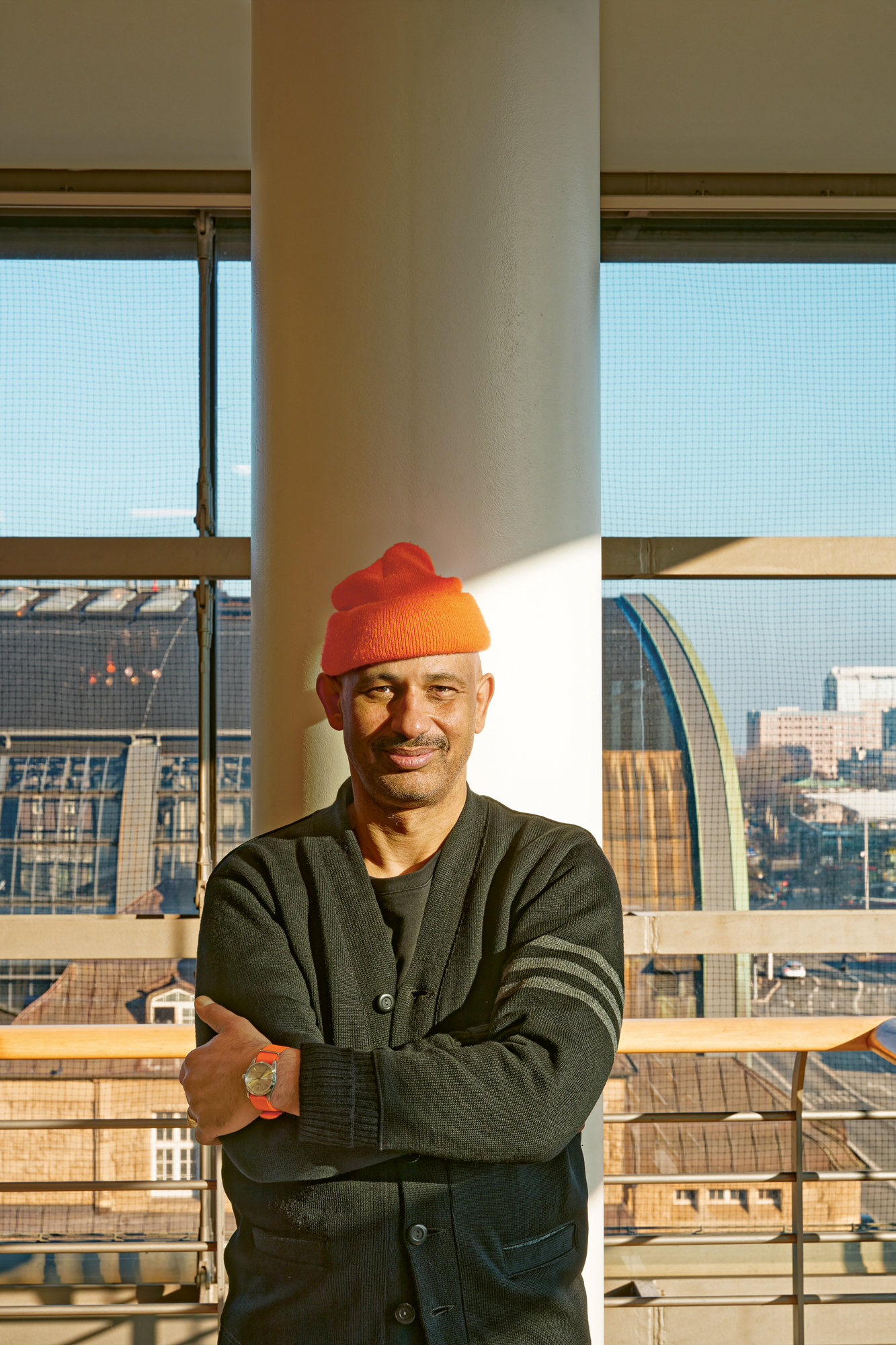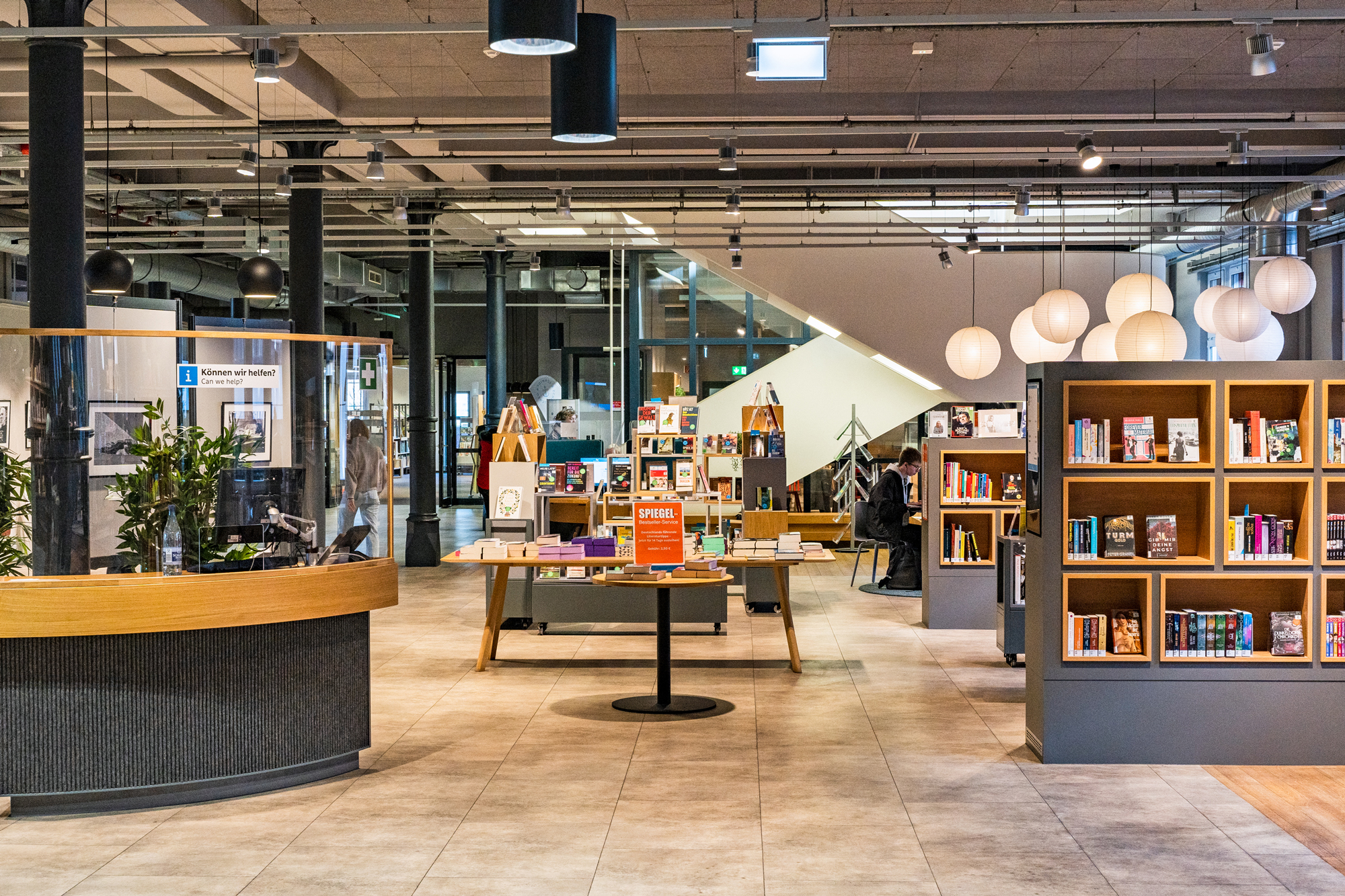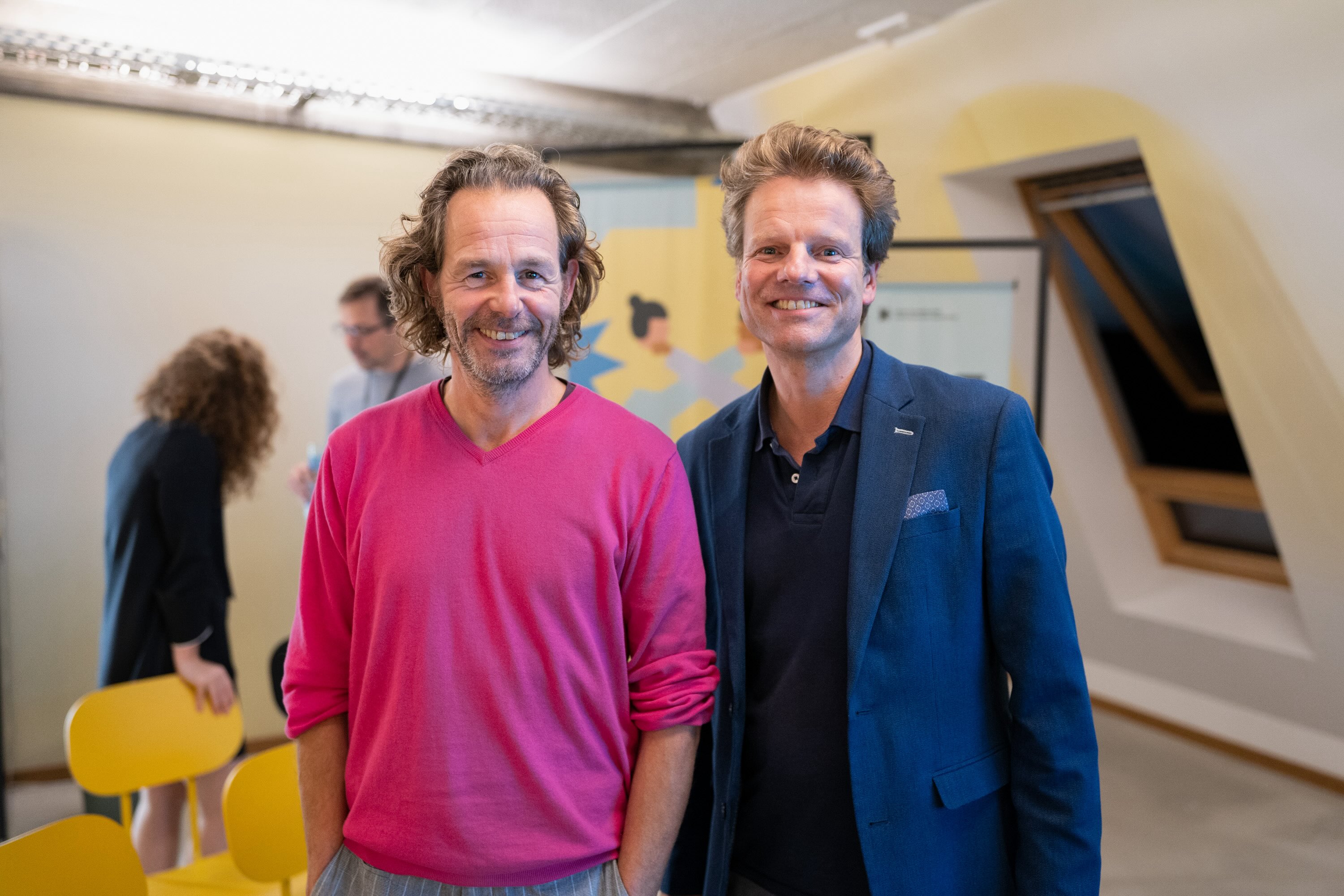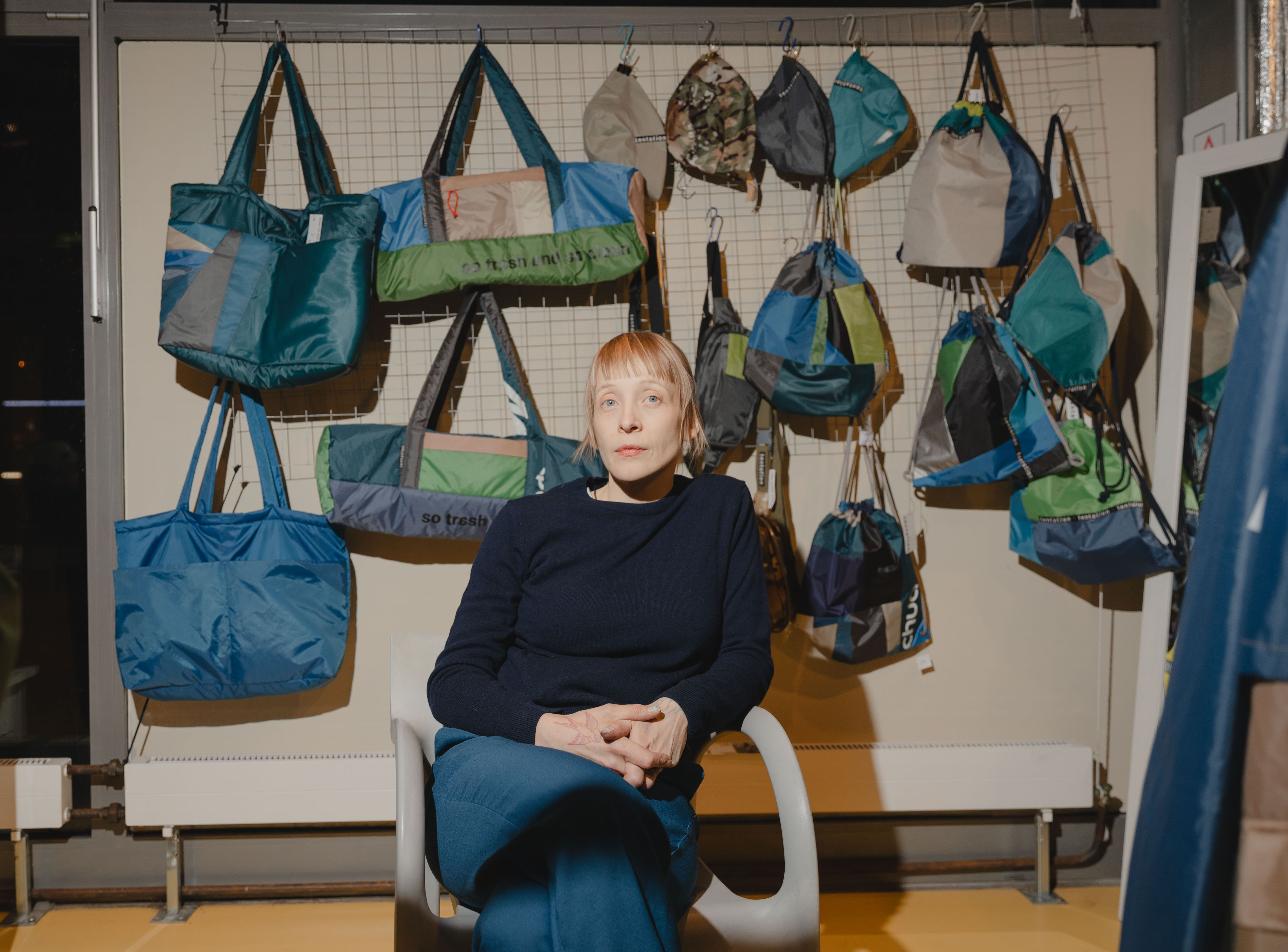As we drive towards the North Sea, the January sun breaks through the cloud cover. "The first thing I did was take a doll workshop with a designer to get a feel for the complexity," says David Amoateng. There are more than a hundred steps involved in making a doll. "Together with our product designer Sue Göldner, who has been with us since day one, I then worked out our designs and patterns." With the first doll, he set out to find a manufacturing partner - including in Ghana, the country where his father was born. The sewing workshop he wanted should have a manufactory character, and the quality and craftsmanship of the dolls should ultimately be recognisable. In addition, children's products that are sold on the European market must fulfil high standards and guidelines. As he was unable to find a suitable company, he and his friend from university and current business partner Gideon Frimpong Baah, whom he had met in China, quickly set up two tailoring centres in Ghana. Today, a good twenty employees are involved in the realisation of Little Ashé products, under fair working conditions and wages, as David Amoateng says.
Dolls that cross the ocean
When a batch is ready, it is packaged and, after an ocean crossing, reaches the small town of Meldorf in northern Germany. David Amoateng drops by every few weeks, as he did today. The dolls are stored on a large shelf in a spacious hall, organised by product name. We empty one of the plastic bags on the table. Henry, Mira and their contemporaries look at us somewhat mischievously from the side - a deliberate design decision, as David Amoateng explains. "I've spoken to many families who find dolls rather creepy. Their eyes always stare straight ahead, right into the soul. We wanted to do things differently." The hands and feet of the dolls are also marked out during the manufacturing process so that children can playfully learn to count fingers and toes.
